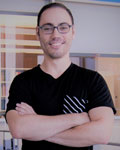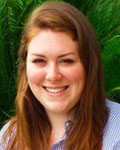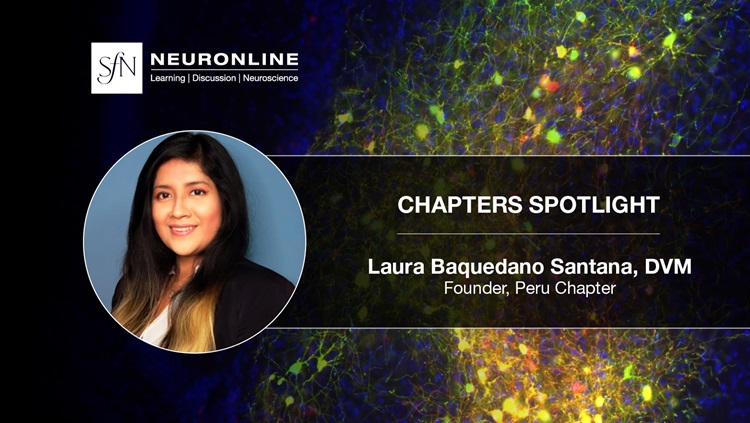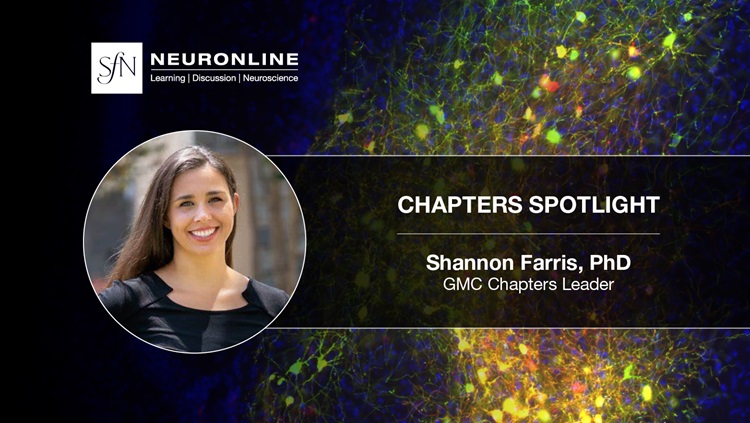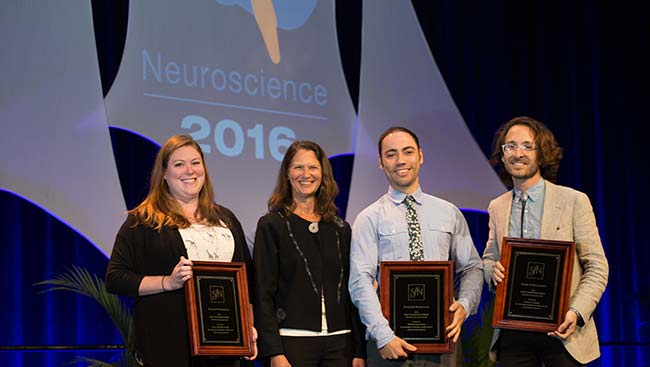
The Brain Matters podcast, run by Anthony Lacagnina, Lauren Kreeger, and Matthew Davis, graduate students at The Institute of Neuroscience at The University of Texas at Austin, makes neuroscience “accessible, relatable, and intriguing while still respecting the integrity of the science we love.” For their innovation and impact, Lacagnina, Kreeger, and Davis won the Next Generation Award (Pre-/Post-Doctorate Level) in 2016. Here, they collectively discuss their motivations for outreach and anecdotes from running the podcast.
Why are you interested and invested in having experts across the field share their neuroscience research with other neuroscientists and the public?
The main goal of the podcast is to create a space for neuroscientists to have an in-depth conversation about their research, while also delving into their personal stories of how they became scientists. A healthy amount of science journalism can be sensationalized or shallow, and it does very little to connect the audience with the people behind the discoveries. We wanted to create a show that not only talks about research but also provides insight into the nature of scientific discovery — the struggles, failures, emotions, and inspirations that every scientist experiences. This perspective helps the audience to better connect with the science by putting a voice and a personality to the research. We also see our work as both educational and archival. In a way, we’re documenting the current status of the field and creating a mini-biography of the scientists.
In a Science article, Matt explained that one of the joys of running your podcast is showing other trainees that advanced career scientists “are not just researchers,” and that “they have the same struggles” with their career paths and personal lives that everyone faces. What valuable lessons have you learned from your guests?
Before starting the podcast, we had the impression that most seasoned researchers knew from a young age exactly the line of work that they wanted to do. It’s been comforting as young scientists to learn about the many diverse, winding paths that lead people to become scientists and positioned where they are currently. It turns out that many successful lines of research were more stumbled upon than planned. There is a huge degree of luck and serendipity that can determine the difference between success and failure. The successful scientists were able to pair this luck with a lot of hard work, passion, and creativity — yet they still failed along the way repeatedly. We think that providing this honest perspective helps humanize the scientific process and can alleviate some of the anxieties that early career scientists experience.
Like your guests, you’re not just researchers. Your outside interests range from cooking to playing music — and of course, running a podcast. Between your grad school work and hobbies, how do you approach balance? And, do you find these different activities helpful to your research?
Science is inherently very creative. Like any skill, being creative takes practice. We have to learn how to be imaginative, to play, and to be a bit weird. Making time for creative hobbies is challenging, but we find that it is necessary to explore different modes of thinking. There is a cultural idea that scientists are one-dimensional and have no other interests outside their research, but this is mostly untrue. We think it’s necessary to exercise the creative, illogical parts of the brain to provide an outlet to play in this frame of mind and to augment our science, which absolutely requires the ability to be creative and open-minded.
How are you hoping your podcast grows, and are you planning on doing any other types of outreach events?
We are constantly humbled and gracious for all the support we’ve received from our audience. It’s hard for us to believe, but we are about to hit a big milestone of one million downloads. We plan to continually increase our audience and remain as a popular outlet for broadcasting voices in neuroscience. Beyond the podcast, we are hoping to organize some live shows for our community of Austin.
Speakers
